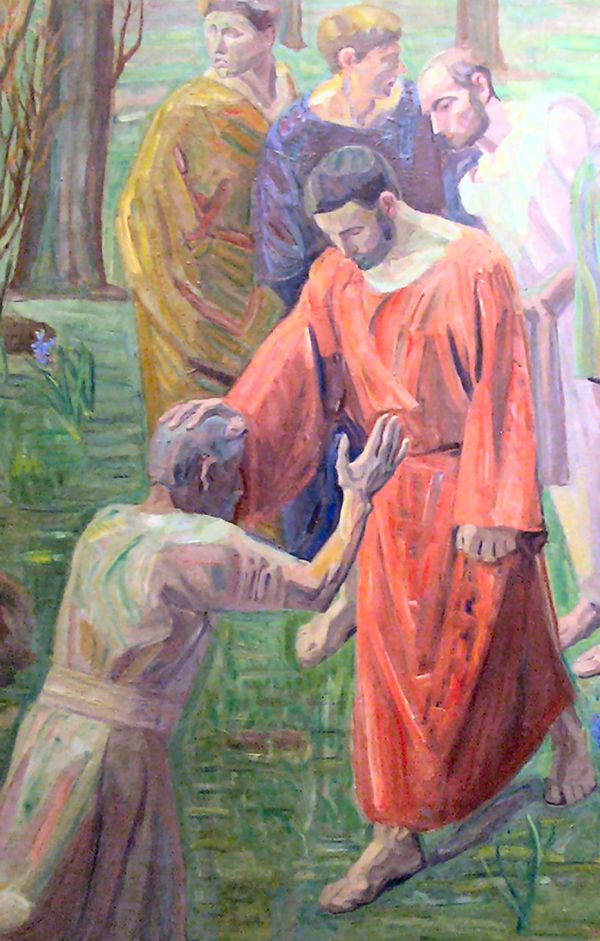The leper and the creative Touch, which reintegrates him
(Mt 8:1-4)
We ask: how did Jesus practise the Law? His transgressive Touch sums up his life and outcome, teaching and mission.
The marginalised came close to Christ, who did not turn anyone away - openly contravening the Torah's rule (Lev 13) imposing that the unclean should be cast out, and to them to allow themselves to be excluded.
For every rejected from the circle of hypocritical legalists there is only one way out, always: to be healed by God himself. And to invent ways to circumvent the norm [even devout] in order to have a personal relationship - without prior conditions of purity.
One is not saved alone: immaculacy can only be a Gift. But often even those who are called upon to help refuse to deal with - locking the very needy into absurd loneliness.
For the Lord, religious exclusivism is a sordid invention of opportunistic potentates and deviant leaders who distort the face of God to subjugate consciences.
The Father welcomes everyone as sons; Jesus as friends - and He does so by violating [also] certain provisions.
Thus the man of Faith embraces sisters and brothers, excluding the precautionary scrutiny of upstream conditions, moralistic or sacred judgements, and mentalities.
But in that culture it was only the certificate of health issued by the priests (v.4) that meant: “now you can live readmitted to society”.
In the composition of the passage, the evangelist means: it is the encounter with Christ that heals and becomes the free pass even to be accepted in the community - not the precautions, nor the rigmarole of disciplines of the arcane [always directed by those who consider themselves healthy and uninfected].
One does not have to be already perfect and certified, to be admitted or reinstated, and attend church as “not unwelcomed”.
The Saviour misendures marginalization or exclusive realities, through which we would never recover the original innocence they promise.
Instead, it is the Gratis of Jesus that makes one exist unconditionally, with normality and fullness.
He himself obliges the authorities to recognise the fact that we are pure, complete (to live our vocation) and healed; fully empowered to be with others and not to be sent away.
The Message was indeed strange to conventional ideas, but it spread, arousing enthusiasm precisely among those removed from the 'centre' [cf. parallel Mk 1:45]: God has no repugnance.
And where the arrangements on the ground were contrary to its humanising project, something would have to be invented - in order to have a personal relationship, a meeting, a minimum of face-to-face contact.
Not infrequently (unfortunately) without the nerve to transgress the religious precept, the initiative of love that renews the face of the earth cannot be triggered, and death comes back to haunt us, annihilating every yearning for life.
It seems a paradox, but sometimes one does not get back on one's feet otherwise than by circumventing the obstacles of certain provisions, with extreme courage and at the risk of further marginalization.
We see it in the Son who re-lifts us up, a violator of exclusive formal procedures: an 'eccentric divine' who has the power to overcome the most lacerating evil: that which corrodes within and excludes.
Today, too, the Spirit of rehabilitation bursts into our reality, breaking through the outside hard stone tables, in order to ramp through - and finally occupy the centre of our path.
[Friday 12.th wk. in O.T. June 28, 2024]












